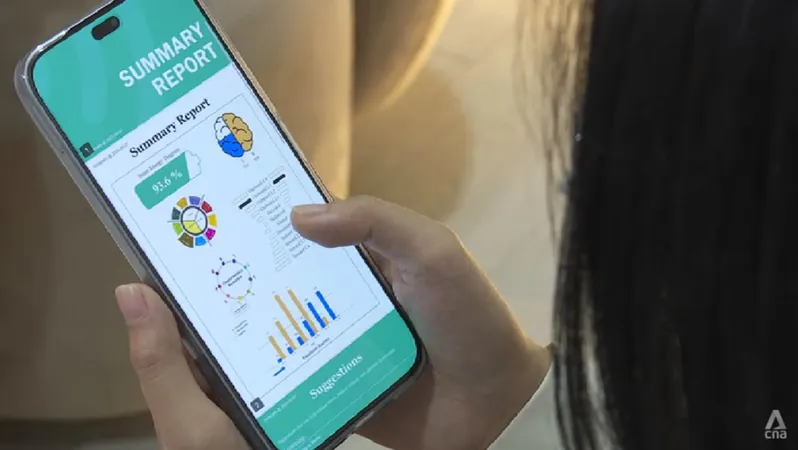
Innovative AI Solutions Revolutionizing Mental Health Care in Malaysia
2024-10-07
Author: Yu
Introduction
In a groundbreaking move to tackle the pressing shortage of mental health professionals in Malaysia, a new application powered by artificial intelligence (AI) is being used to assist in diagnosing and treating mental health conditions, particularly depression. The app is the brainchild of Dr. Jest Wong, who, having battled severe depression himself, recognized the urgent need for accessible mental health resources.
How the App Works
The application allows users to simply scan a QR code and provide a 90-second voice recording, which the system analyzes for vocal characteristics such as clarity, tone, and speech rate. This analysis generates a comprehensive mental health report that can indicate whether the user may be experiencing depression or stress. "You can actually know a person if they're suffering from depression or stress or not," Dr. Wong expressed, highlighting the app’s potential to transform mental health awareness in the country.
User Demand and Statistics
Since its launch in July of last year, the app has already garnered more than half a million users, showcasing the significant demand for mental health resources in Malaysia. Once users receive their mental health report, they can decide to seek further assistance from psychiatrists if necessary, addressing the alarming statistic of just 500 psychiatrists serving a population of over 33 million—equating to one psychiatrist for every 200,000 individuals. This is starkly below the World Health Organization's recommendation of one psychiatrist per 10,000 people.
Expert Opinions
According to Dr. Prem Kumar Shanmugam, CEO of the rehabilitation center Solace Asia, the increasing awareness of mental health issues paired with the shortage of clinicians has opened the door to innovative treatment options. "AI, digital technology, and chatbots are definitely options," he suggests, indicating a pivotal shift towards modern solutions in mental healthcare.
However, experts caution that while AI can enhance mental health support, it cannot fully replace the depth and nuance of human interaction. "Culture specificity has not been learned yet. We need to be culturally sensitive to the specific needs of different people," Dr. Prem cautioned. Dr. Maria Hennessy, an associate professor of clinical psychology at James Cook University, echoed this sentiment, stating that current AI technologies are more aspirational than fully realized. She explained, "They can provide basic information, but they lack the empathy and rapport that you seek from a skilled mental health clinician, which is crucial for effective care."
Conclusion
As the technology continues to evolve, experts agree that the implementation of AI in mental healthcare is a promising step toward proactive mental health management. It has the potential to deliver accessible information to individuals who might otherwise struggle to find it. However, the consensus remains that these innovations should serve as a complement to, rather than a replacement for, traditional clinical care.
In conclusion, Malaysia stands on the brink of a mental health revolution, with AI paving the way for advancements that could considerably improve access to care. As professionals refine these tools and address concerns around data privacy and ethics, the hope is that mental health resources will become more inclusive and effective, ultimately leading to a healthier society.




 Brasil (PT)
Brasil (PT)
 Canada (EN)
Canada (EN)
 Chile (ES)
Chile (ES)
 España (ES)
España (ES)
 France (FR)
France (FR)
 Hong Kong (EN)
Hong Kong (EN)
 Italia (IT)
Italia (IT)
 日本 (JA)
日本 (JA)
 Magyarország (HU)
Magyarország (HU)
 Norge (NO)
Norge (NO)
 Polska (PL)
Polska (PL)
 Schweiz (DE)
Schweiz (DE)
 Singapore (EN)
Singapore (EN)
 Sverige (SV)
Sverige (SV)
 Suomi (FI)
Suomi (FI)
 Türkiye (TR)
Türkiye (TR)